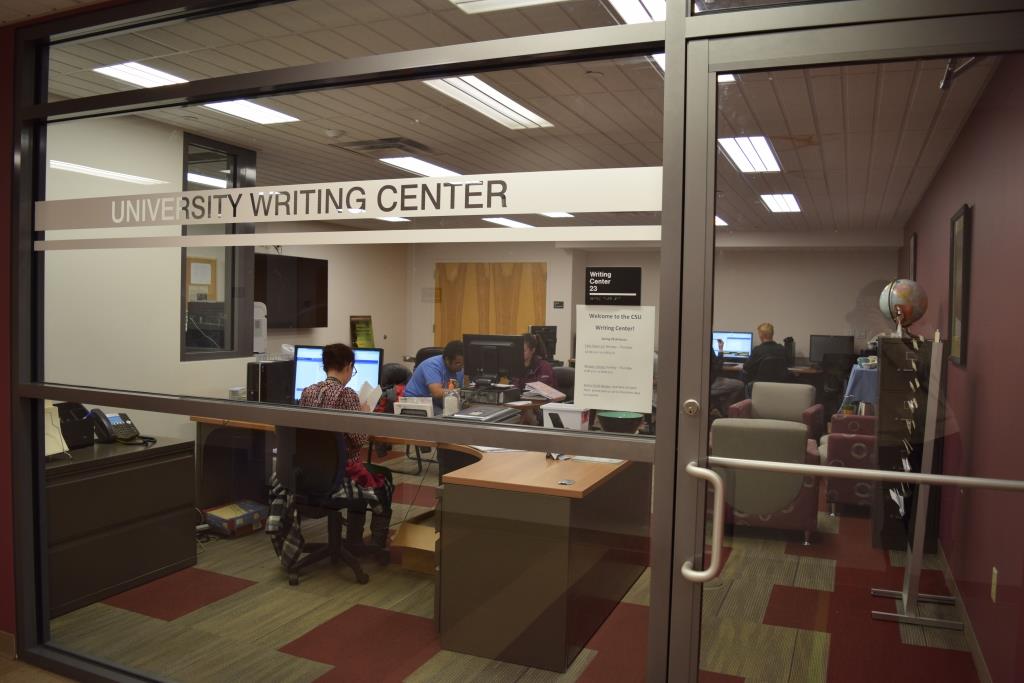
The Colorado State University Writing Center is a free service open to Colorado State University students, staff, faculty, and alumni as well as the local Fort Collins community. Their goal is to engage their community in conversations about writing; to that end, they provide face-to-face and online consultations for writers in all disciplines working on all types of writing from traditional research papers to electronic texts such as websites and blogs.
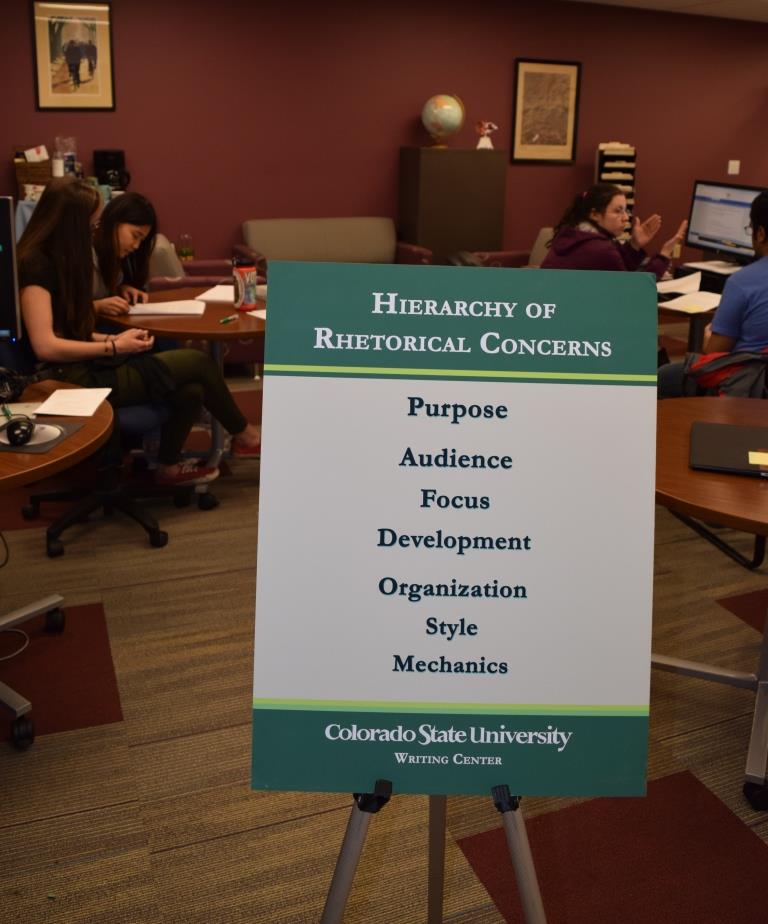
Beginning with writers’ needs and concerns, they use their knowledge and expertise to enhance writers’ understanding of a variety of rhetorical issues, such as purpose, audience, style and conventions. Writing Center consultants can assist writers at all stages of the writing process, including brainstorming, drafting, researching, revising, and polishing. They strive to help writers develop the confidence to make effective writing choices in any writing situation. In these ways, they support the shared goal of writing centers everywhere to help create better writers, not just better writing.
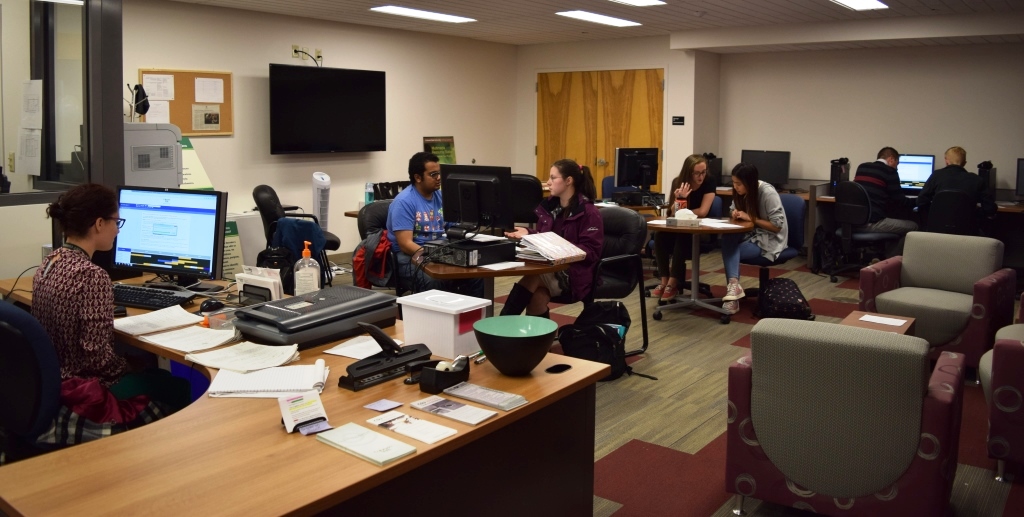
During the final weeks of Spring semester, Intern Ashley Alfirevic, (who was also in the final weeks of her time at CSU, about to graduate), spent some time in the Writing Center with various staff members, talking with them about what the center has to offer, taking pictures and making some videos. (P.S. We apologize for the background noise in the videos made that day — the Writing Center was hopping!).
Writing Center Director Lisa Langstraat tells how the Writing Center got started.
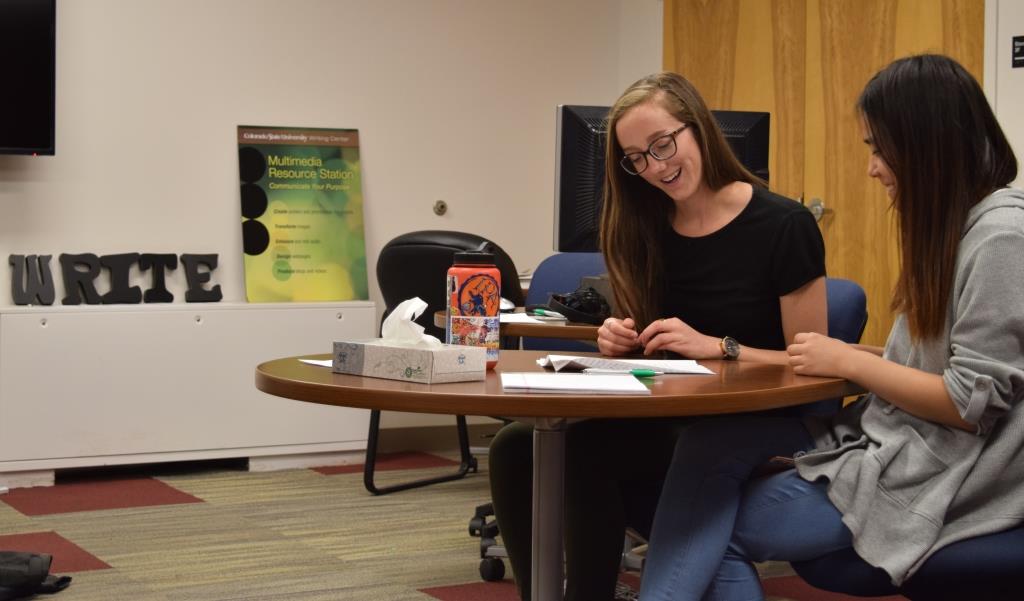
The Writing Center believes that writing is not a solitary act and that writing becomes more effective when discussion/conversation surrounds it. The Colorado State University Writing Center is dedicated to providing advice and help in every stage of the writing process. Their goal is to engage the community in discussion about writing by providing face-to-face and online consultations, classroom presentations, and outreach to faculty, staff, and students.
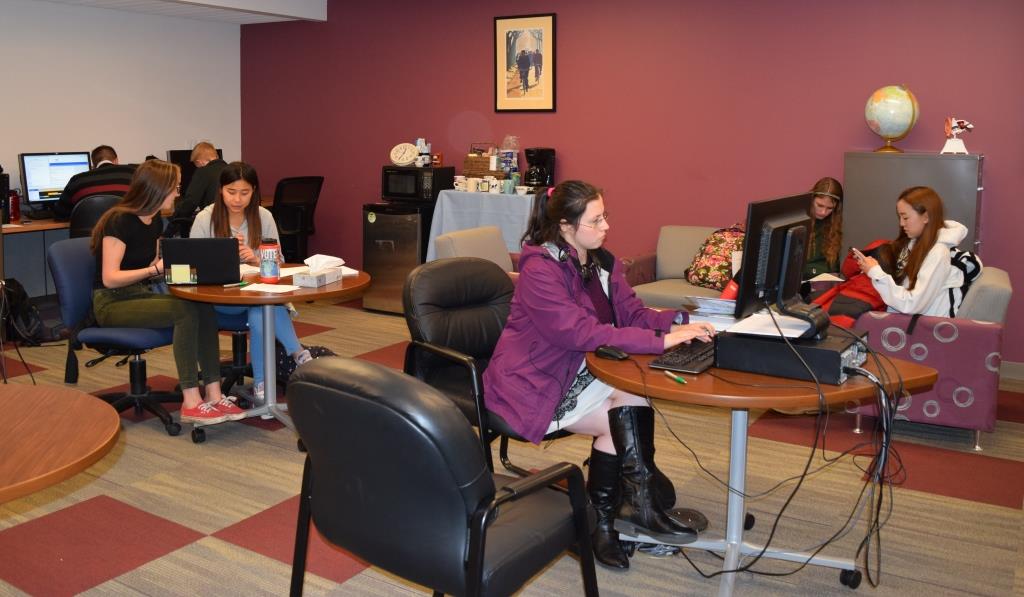
Writing Center Director Lisa Langstraat talked specifically about the myth that the Writing Center is only for people who aren’t good writers.
One of the myths that often disturbs me about writing centers is that they’re a place where people who are not good writers come. And I think that is really problematic because we see writers who are certainly developmental writers – people who’ve been out of the university for a long time, maybe they’re rusty, or people who are just learning US academic discourse – but we also see people who are working on dissertations and masters theses.
The Writing Center is based upon the philosophy that to become a better writer you need to talk about your writing with writers. And of course, this is what all writers do, right? In my field, when I’m publishing an article in a journal , I get feedback from editors, and that’s the same thing that happens in the Writing Center – we get feedback. So I guess something I would really like to dispel is this myth – that only people who are not strong writers come to the Writing Center. It’s a place for everybody.
Writing Center Associate Director Bruce Shields agrees.
Absolutely. I think that’s what the Writing Center offers – that chance, that opportunity for conversation, to talk about your writing in new ways and explore new ideas, to bounce ideas off of another person, and to challenge yourself as a writer, try to find new processes, new ways of looking at whatever it is you are working on. So that’s applicable to all writers at all stages of the writing process as well. It doesn’t matter whether or not you are new, whether or not you’re comfortable with writing, whether or not you feel as if you are a relatively good writer, you just want somebody to have a conversation with [about your writing], to look at it [your writing] from a new point of view.
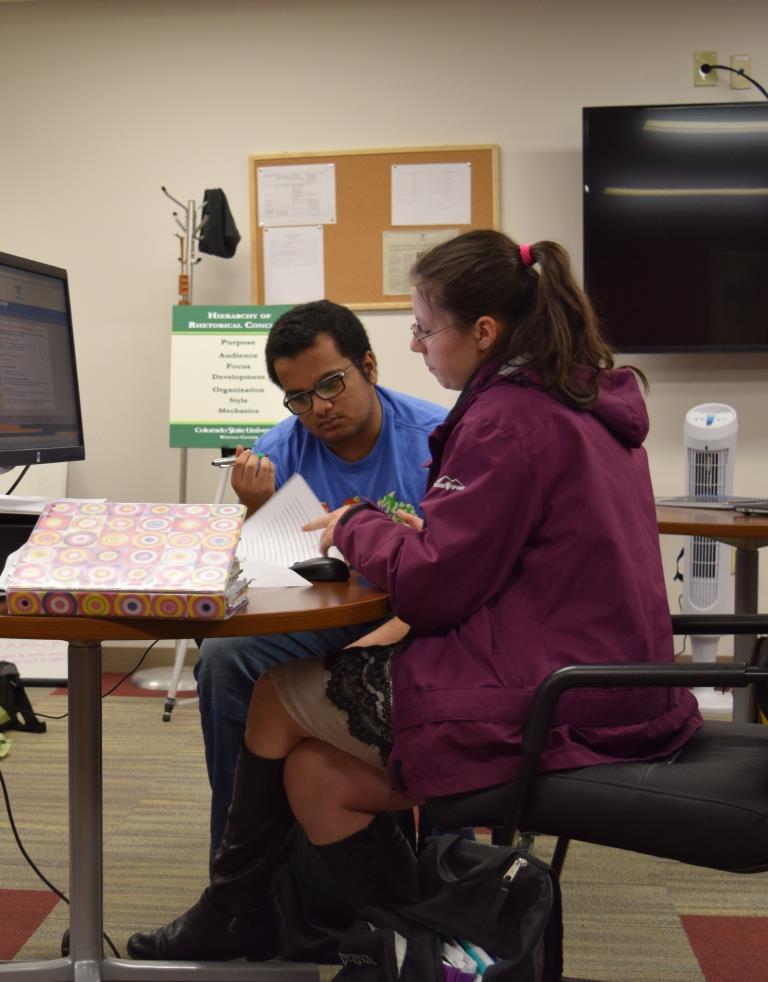
Lisa asked Writing Center consultant Alyson Welker, “do you think this is the same kind of dynamic that happens in synchronous online consultations?”
I do. I think some students who are hesitant to come in to the center actually find that [a synchronous online consultation] is a way to get involved and practice, to get a feel for what happens during a consultation. Sometimes people feel more comfortable with that space in between, practicing, and then they kind of get hooked, “I want to come do this again,” and if they’re close, coming in is available.
Alyson talks more about the synchronous online writing consultations.
While face-to-face consultations can provide more opportunity for conversation with consultants and immediate feedback, the Writing Center understands that not all students can visit the physical center locations during their hours of operation. For that reason, they offer the online draft review queue. Writers submit a draft to the queue, and a consultant will respond in the order in which they receive drafts. Assistant Director Michelle Wilk talks about online consultations.
Writing Center Associate Director Bruce Shields talks about Writing Center consultants.
Wonder what a face-to-face consultation is like? Consultations last for 30 minutes, and in that time we typically discuss the equivalent of 4-5 pages (double spaced) of writing. Using the hierarchy of rhetorical concerns, consultants and writers address issues of audience, purpose, context, focus, development, organization, style and conventions. CSU students can request that an email notification be sent to their instructor outlining the work that was done during a consultation. Face-to-face consultations are open to CSU students, staff, faculty, and the general public.
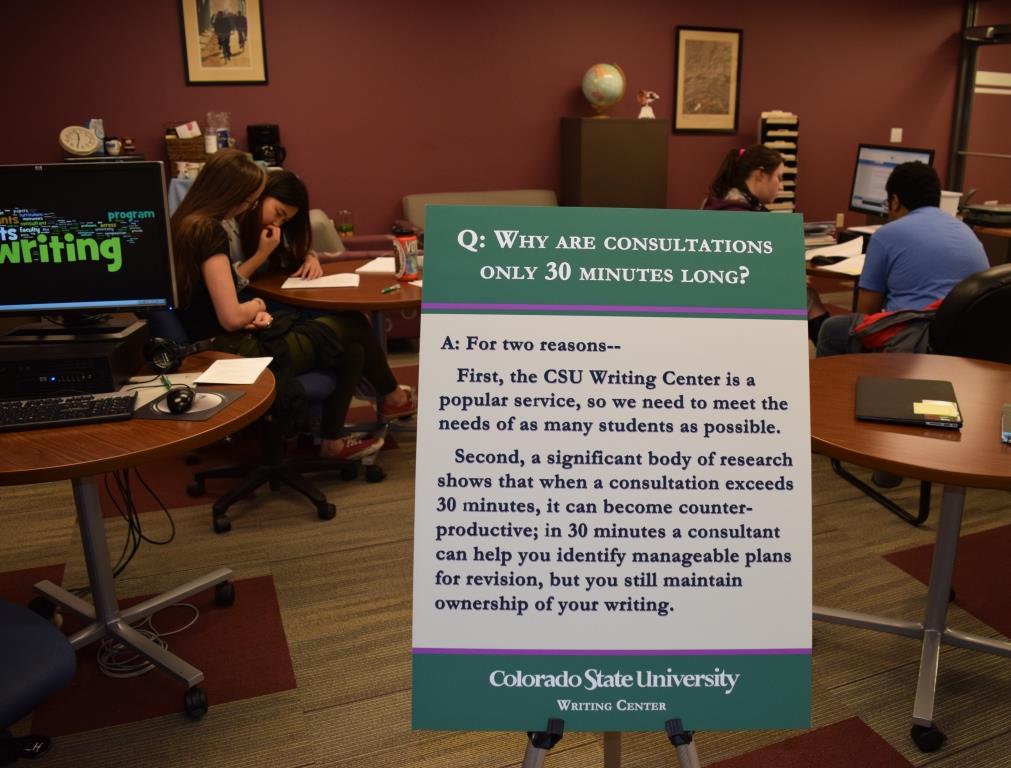
Some Writing Center statistics from the 2014/2015 academic year:
- In 2014-2015, 1609 students used the Writing Center services.
- In 2014-2015, there were 4730 total consultations.
- In addition to offering face-to-face consultations, the Writing Center also provides feedback online. In 2014-2015, 1712 of their consultations were conducted online.
- The Writing Center is a great resource for ELL students. In 2014-2015, 49% of their consultations were with students whose first language was not English.
- In 2014-2015, 14% of their consultations were with graduate students.
- In 2014-2015, 10.4% of their consultations were for courses that have a special collaboration with the Writing Center (e.g. BUS300, Psych100).
- Students visit the Writing Center for help with hundreds of different courses. In 2103-2014, students received help with more than 350 courses.
- The Writing Center assists writers from many different fields of study. According to their registration data, in 2013-2014, students came from 191 different academic programs across campus.
- In 2013, international students from 41 different countries using the Writing Center services.
- 19.3% of registered clients were students from under-represented populations at CSU.
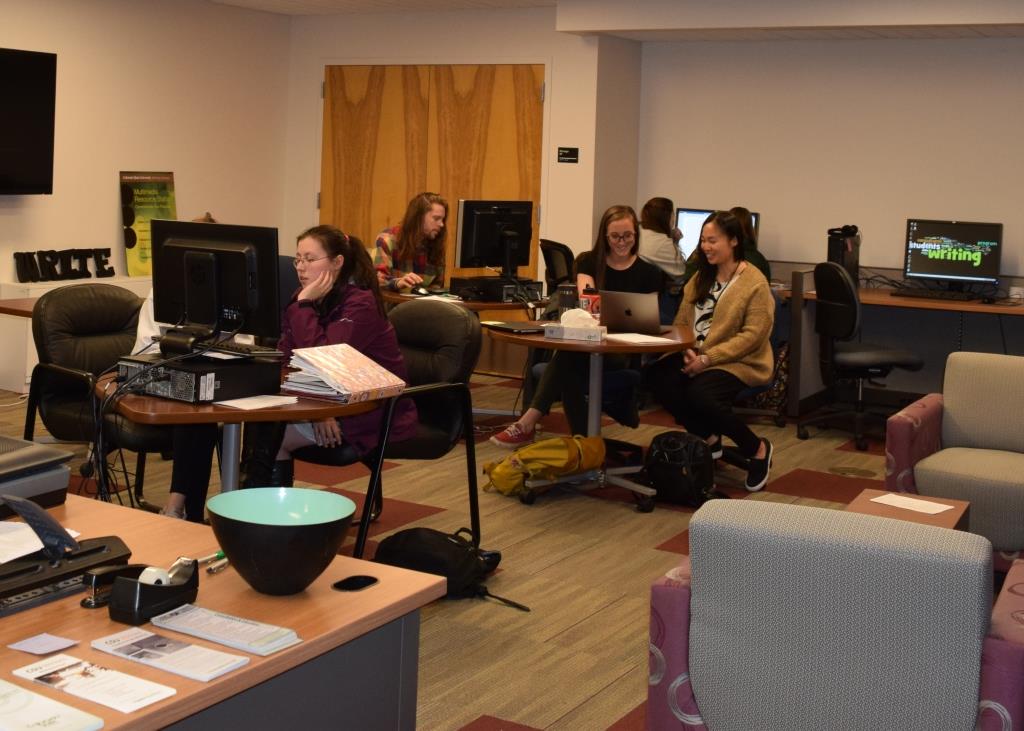
Writing Center Associate Director Bruce Shields had this to say about visiting the Writing Center,
Something I’m always surprised by is how many people return to the Writing Center to use our services, and I think that sometimes there can be that initial discomfort of walking through the door, coming to a new place, new space, but I think that the Writing Center’s always been a warm, welcoming environment, and once people sit down and have that conversation, that it’s not evaluative, there’s no judgment involved at all.
Writing Center Director Lisa Langstraat added, “No judgment at all. There’s just help.”
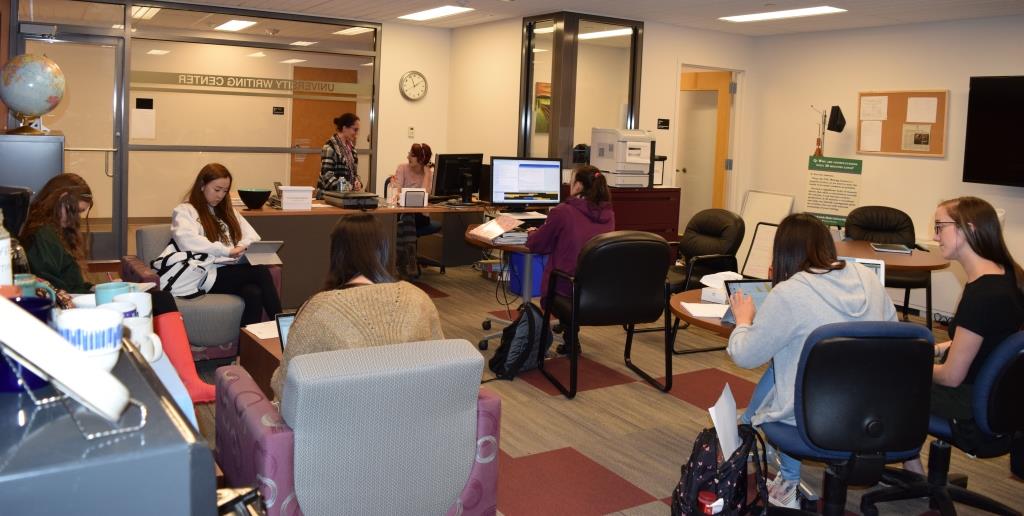
Director Lisa Langstraat had this to say about what is so special about the Writing Center.
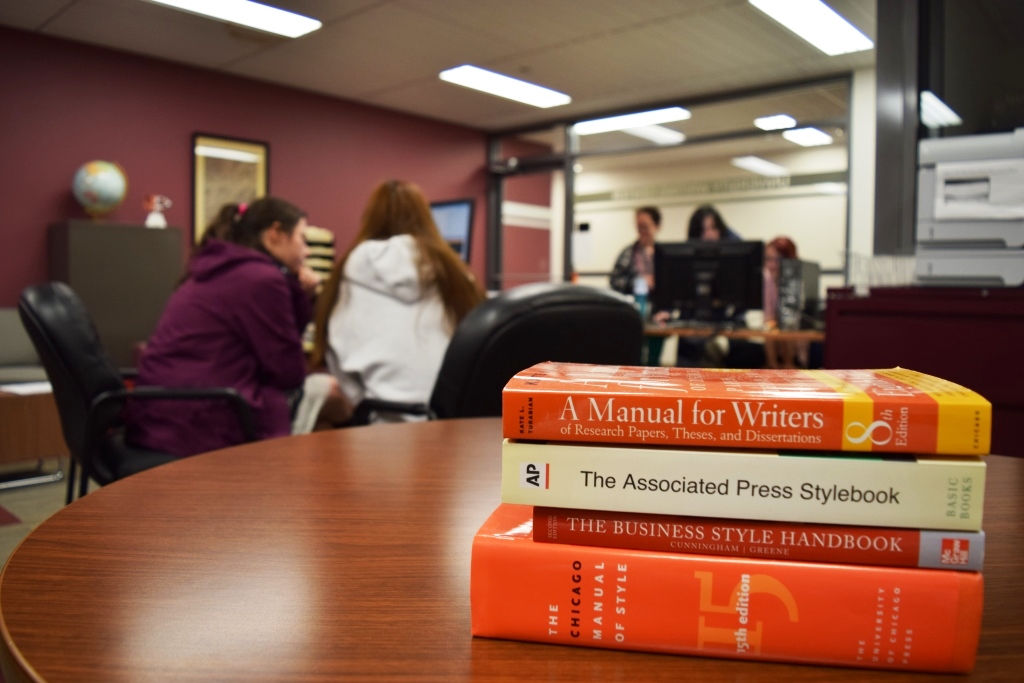
Writing Center Associate Director Bruce Shields had this to say about the Course Collaborations service.
I think it’s really cool because it allows for us to take advantage of different genres of writing other than what you would expect to see from the English department, from other disciplines other than the English department. One of the cool things about the Writing Center is that it is a multidisciplinary resource, meaning that we see writers not only from English but from Business classes, from Science classes, from Psychology classes, from Biology classes, from all kinds of different disciplines and backgrounds. We’re always trying to keep an eye open to see what backgrounds and experiences that they’re [students] bringing in to the Writing Center.
So the Course Collaboration Program is an opportunity for faculty to reach out and say “hey, a lot of my students could really take advantage of this resource – what kind of opportunities do you offer for us?” And what we have is a way for us to develop and cultivate a much more direct relationship with faculty from other disciplines. Faculty who are interested typically submit some of their materials, so a lot of their assignments, syllabi, whatever resources might be useful during a consultation. Sometimes faculty give us textbooks that our consultants will refer to, just to get a deeper understanding of some of the conventions of those genres that they’re writing in, as well as a deeper understanding of some of the concepts that they’re going to be working with. That allows us to be better informed when students from those classes come into the Writing Center. We’re approaching their writing from a much more informed position. Right now we have course collaborations from Psychology classes, from Human Development and Family Sciences, from Business writing classes, from Biology courses – a variety of different disciplines.
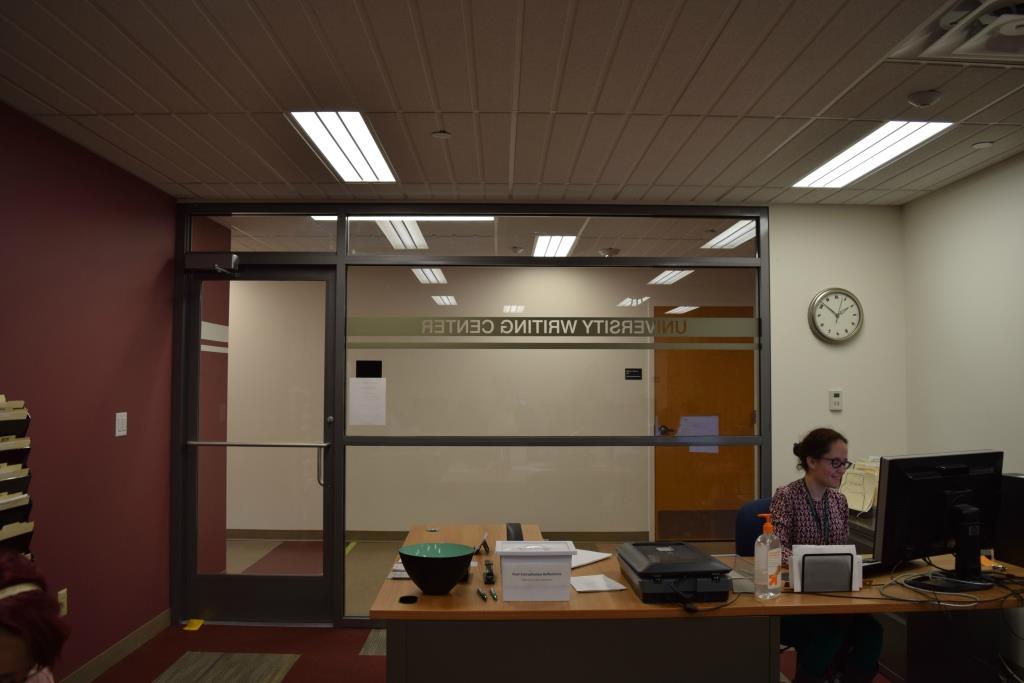
New Writing Center initiatives:
- Synchronous online consultations: Piloting in summer 2016; in effect Fall 2016
- Greater options for graduate student writers: writer workshops and weekend-long “boot camps.”
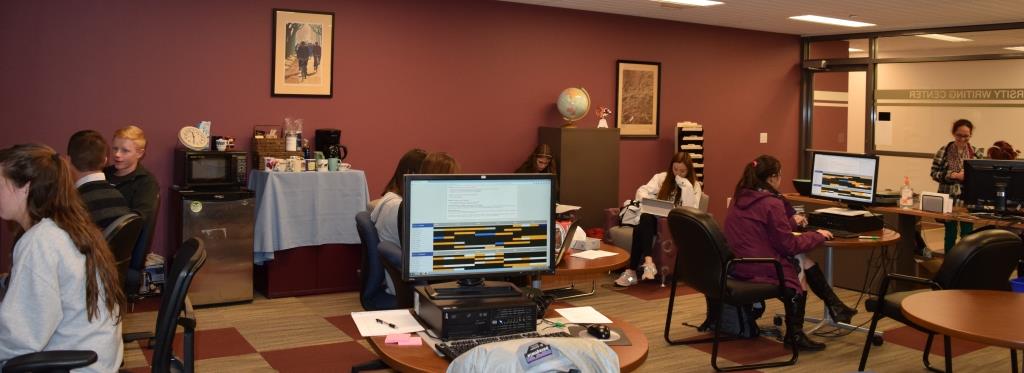
Writing Center Director Lisa Langstraat’s advice for students coming to the Writing Center.